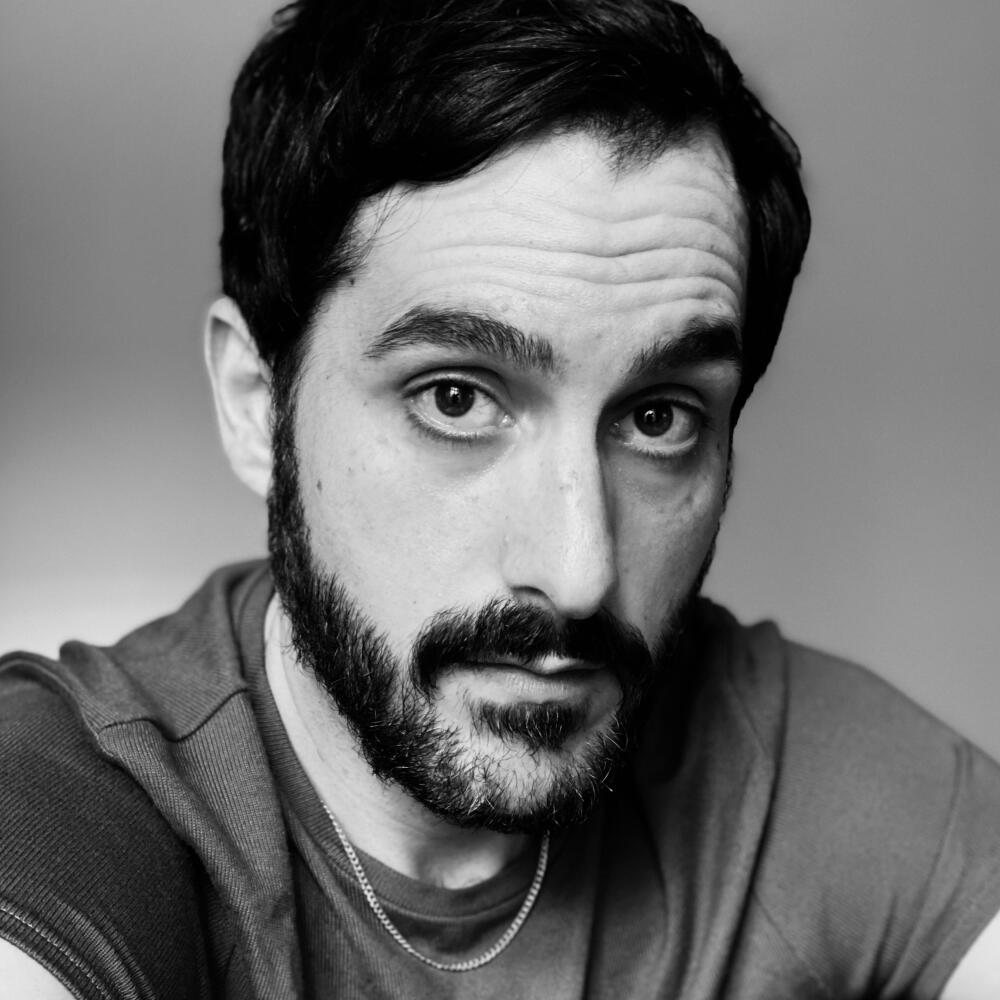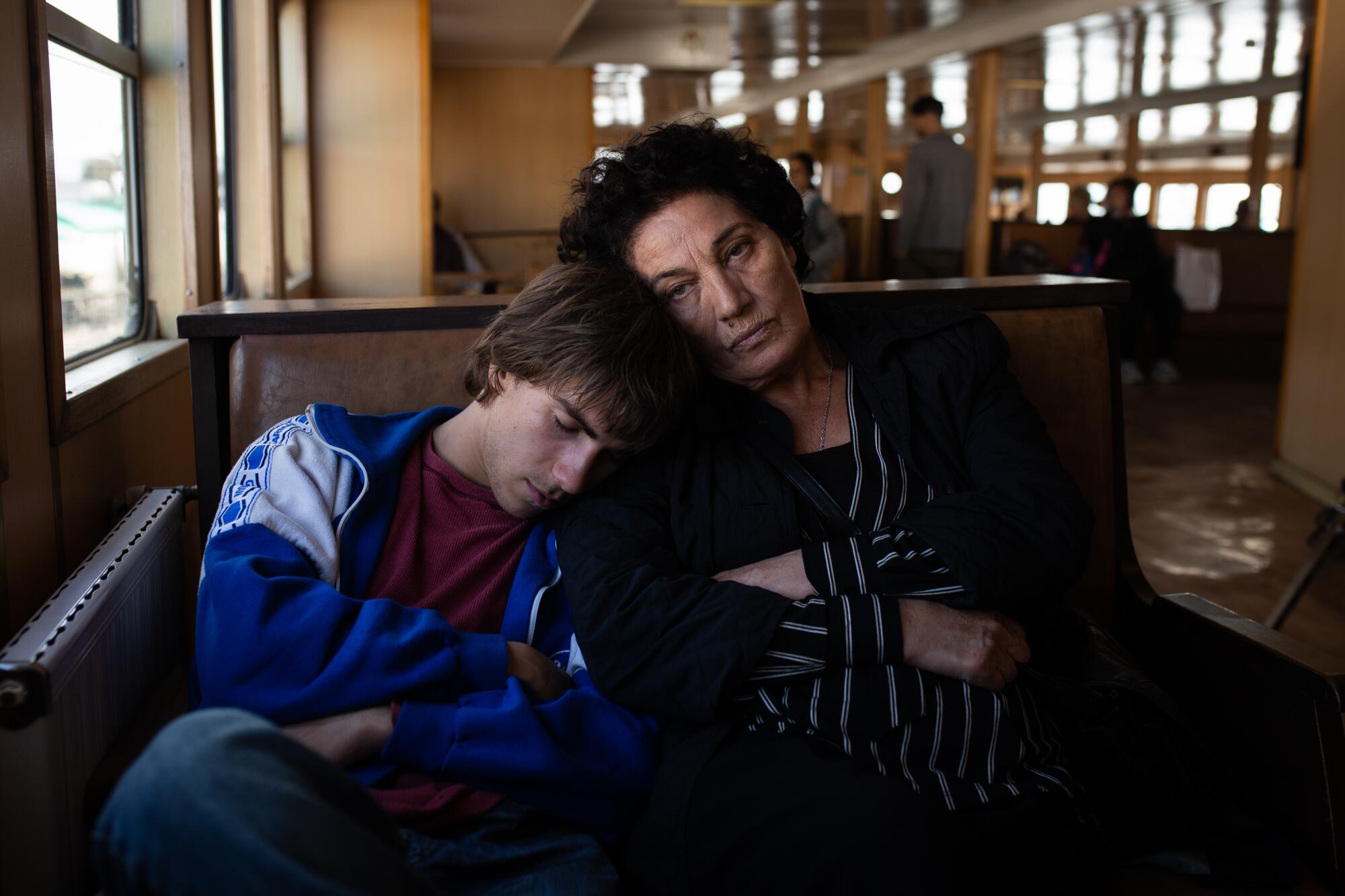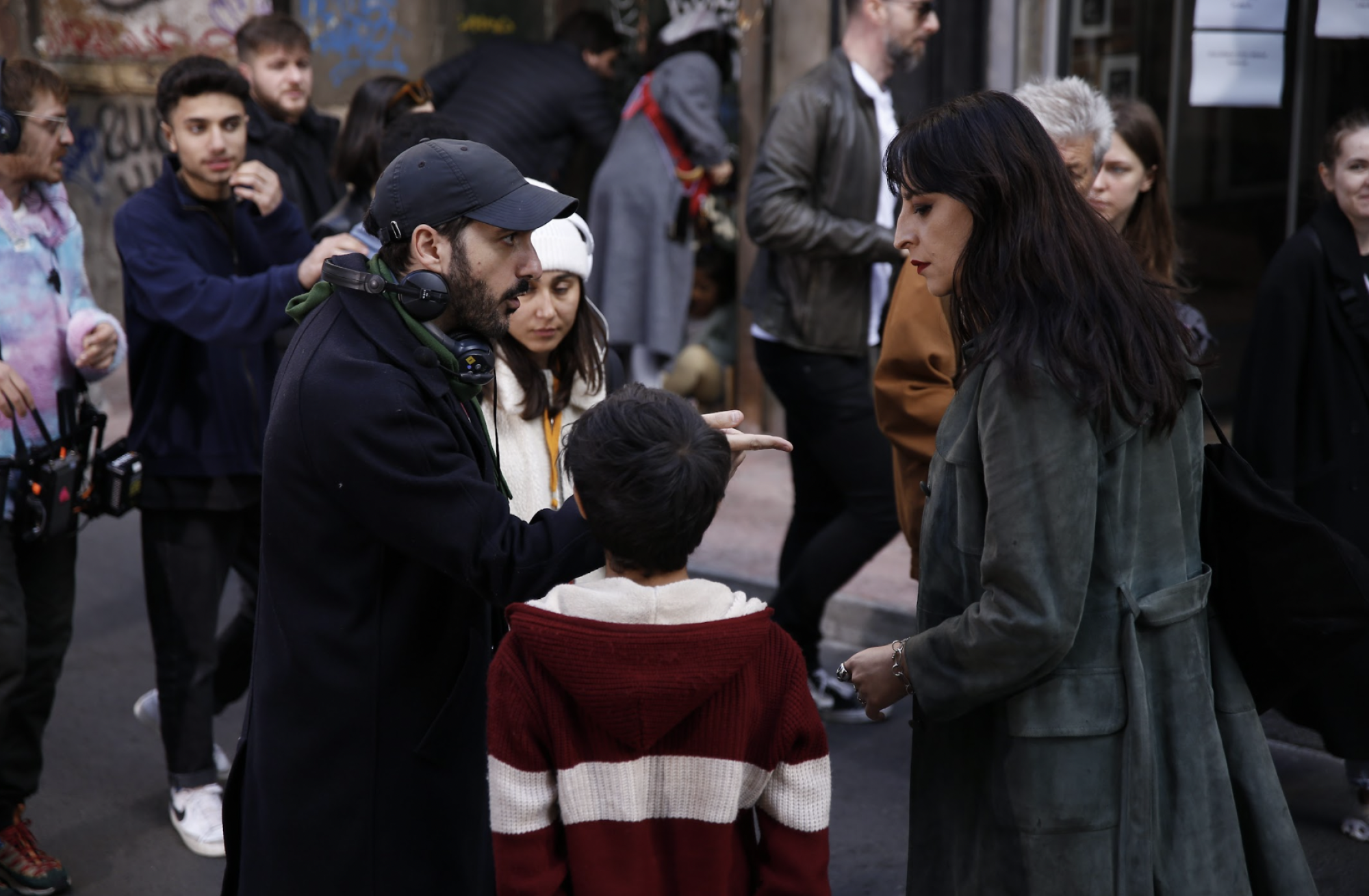
- Share via
Back in 2013, a group of young people in Georgia, the former Soviet republic in the Caucasus region, attempted to hold a pro-gay demonstration to mark the International Day Against Homophobia in the conservative country. Their efforts were thwarted when a violent mob of thousands of Orthodox counterprotesters swarmed and overwhelmed them, attacking with rocks and eggs. More than a dozen people were hospitalized.
“I was appalled,” says filmmaker Levan Akin, 44, via Zoom from England. “I thought I should go to Georgia and make a film on this topic.”
That impulse led to Akin’s second feature, 2019 “And Then We Danced,” a much-lauded gay romance set in the world of traditional Georgian folk dance. But while the film won awards around the world and represented the director’s native Sweden in a bid for an Oscar nomination, its reception in Georgia’s capital of Tbilisi was an entirely different matter.
“They had to call in the army and they had to have policemen in every screening room,” Akin recalls of the risks viewers assumed. “They created a ‘corridor of shame’ that people had to walk through to see the film, like in ‘Game of Thrones,’ where they were throwing things at the character Cersei.”
The movie screened for just three days before the government decided to pull it from cinemas, arguing that deploying military personnel to every showing was too costly. In the end, it found its audience in Georgia by way of illegal downloads.
“He thinks, ‘I’m gay, but I love Georgian dance, but somehow these are not compatible,’” Akin says, speaking from his hero character’s perspective. “‘Who has co-opted that? Who are these traditionalists to decide what I can do? It’s my country too, even if I’m gay.’”

Akin’s latest movie, “Crossing,” in theaters Friday, is a heartfelt odd-couple story that continues his exploration of the experiences of queer people in that area of the world. In it, Lia (Mzia Arabuli), a headstrong, unmarried Georgian woman whose sister has just died, goes in search of her adult trans niece, Tekla, who has moved to the cosmopolitan city of Istanbul in neighboring Turkey. Achi (Lucas Kankava), an aimless young man from Lia’s seaside Georgian town, tags along on the journey, escaping his own bullies.
Facing a language barrier — Achi speaks a few words of English but no Turkish — the two unlikely partners scour the streets for clues to Tekla’s whereabouts, meeting other trans women in the process.
“Women around us are affected by our queer struggle, and they start seeing their own place in this man’s world differently too,” Akin says. “And I thought that was fascinating,”
Akin has always thought of Georgia as a transient place. For him, it’s a complex attachment. As a child in the 1980s, growing up in Tumba, Sweden, his immigrant family would visit every summer to see relatives. One year, his father, a travel agent, enrolled Akin and his sister in a month-long camp — the Soviet version of the Boy or Girl Scouts, he notes — where they’d sing songs to the glories of communism.
After the fall of the Soviet Union, Georgia underwent a civil war, which kept Akin and his loved ones apart for some years. In the aftermath, neo-liberalism took hold. “They built a statue to honor Ronald Reagan and there’s a George W. Bush Avenue,” Akin says, amused.
Unfortunately, these days the country is more politically aligned with Russia. “Georgia changes all the time,” Akin says. “It’s hard to keep up, and every time I do something there, I have to refamiliarize myself with the country.”

Still, the work of reconnecting and shooting on location — even at the risk of public outcry and censorship — is part of what motivates him. After directing for a few years in Sweden, both in TV and his own films, Akin came to a personal crossroads and asked himself what his purpose as an artist was. Using the advantages afforded to him as an outsider from a more tolerant country, he chose to make films in Georgia.
“You spend several years making these types of films, and I felt very strongly that I wanted to do things that had a significance to me on a personal level, and where the process of the work felt important,” Akin says. “It can be very confusing. ‘What is my place in this country that I love?’ is something I think about a lot, and that is present in my films.”
Committing to making queer-themed work in a country like Georgia is a perilous affair. Akin describes it as a “guerrilla endeavor.” For “And Then We Dance,” his production had to lie about the plot in order to secure locations and not attract attention. Even so, when details got out, the crew received death threats.
Akin works with local Georgian production companies that help him with logistics. Most of his actors are first-timers. “Crossing” was a relatively simpler affair since it required only five days of shooting in Georgia, with the rest in Turkey.
Kantemir Balagov’s second feature “Beanpole” is a haunting postwar drama, while Levan Akin’s latest “And Then We Danced” is a moving gay romance.
After the pushback against “And Then We Danced,” Akin sought to tell a story about forgiveness from the point of view of those who don’t identify as queer but whose lives are still affected by rigid gender norms.
“All of the main characters in ‘Crossing’ are trying to navigate their own place in this very patriarchal society,” Akin explains. “I wanted to make a film where the topic was: It doesn’t matter what generation you’re from, love is love.”
Lia is someone who didn’t get married or have children in a culture that expects both from all women. Achi lives in a toxic, abusive environment under his brother’s thumb. A third character, Evrim (Deniz Dumanli), a Turkish trans woman, navigates a male bureaucracy while working for a nonprofit organization in service of vulnerable queer people.
At the premiere of “Crossing” during the Berlin International Film Festival in February, Akin met Georgians who had braved the mobs to watch “And Then We Dance” in Tbilisi. “It was very moving for me to finally be able to have that dialogue with them,” he says.
Akin was able to make “And Then We Danced” and “Crossing” in Georgia because his financing came from Sweden and France. But now, a troubling “foreign agent” bill has passed in Georgia, sparking weeks of street protests. Under the new law, any organizations or media companies with more than 20% of their funding coming from outside Georgia would be effectively considered entities acting in the interest of foreign powers and, thus, subjected to harsher audits and fines.
In the ex-Soviet republic of Georgia, a Russia-style bill targeting civil society and independent media nears final enactment amid protests. Critics see a Kremlin hand.
“This is a way to curb [organizations] that deal with LGBTQI+ issues, women’s issues and anything that they deem progressive,” Akin explains. “It’s a similar bill as what they have in Russia.”
With “Crossing,” Akin didn’t expect as strong a backlash. Unlike his previous film, it didn’t involve any traditional aspect of Georgian culture. But as soon as the movie premiered in Berlin, negative press appeared in Georgian media. Akin attributes this to the upcoming parliamentary elections, set for October, and the right wing trying to portray his work as inflammatory.
“We halted the film’s release in Georgia,” he says, hoping for a better climate after the election. “We don’t want to be a part of this circus.”
As recently as last month, the Georgian Dream party, currently in power, introduced an “anti-LGBTQ+ propaganda bill,” as Akin calls it, which, among other harmful policies, would ban art like his. But as dire as things are in Georgia, the filmmaker warns that the rights of queer people are just as threatened in the West.
“Unfortunately, we currently have a party in Sweden that wants to forbid Pride flags and they’re quite a big party,” he says of the Sweden Democrats party.
Akin has at least one more project he’d like to film in Georgia, a story he describes as bridging the gap in his life as a Swedish Georgian artist.
“It’s about the West and the East and this idea of wealth disparity and white guilt in connection to Georgia,” he says.
Like his characters — determined to move forward amid a roar of intolerance — he doesn’t sound cowed by what lies ahead.
“Sometimes the opposition is loudest,” Akin says, “but they’re not necessarily the largest.”
More to Read
Only good movies
Get the Indie Focus newsletter, Mark Olsen's weekly guide to the world of cinema.
You may occasionally receive promotional content from the Los Angeles Times.











